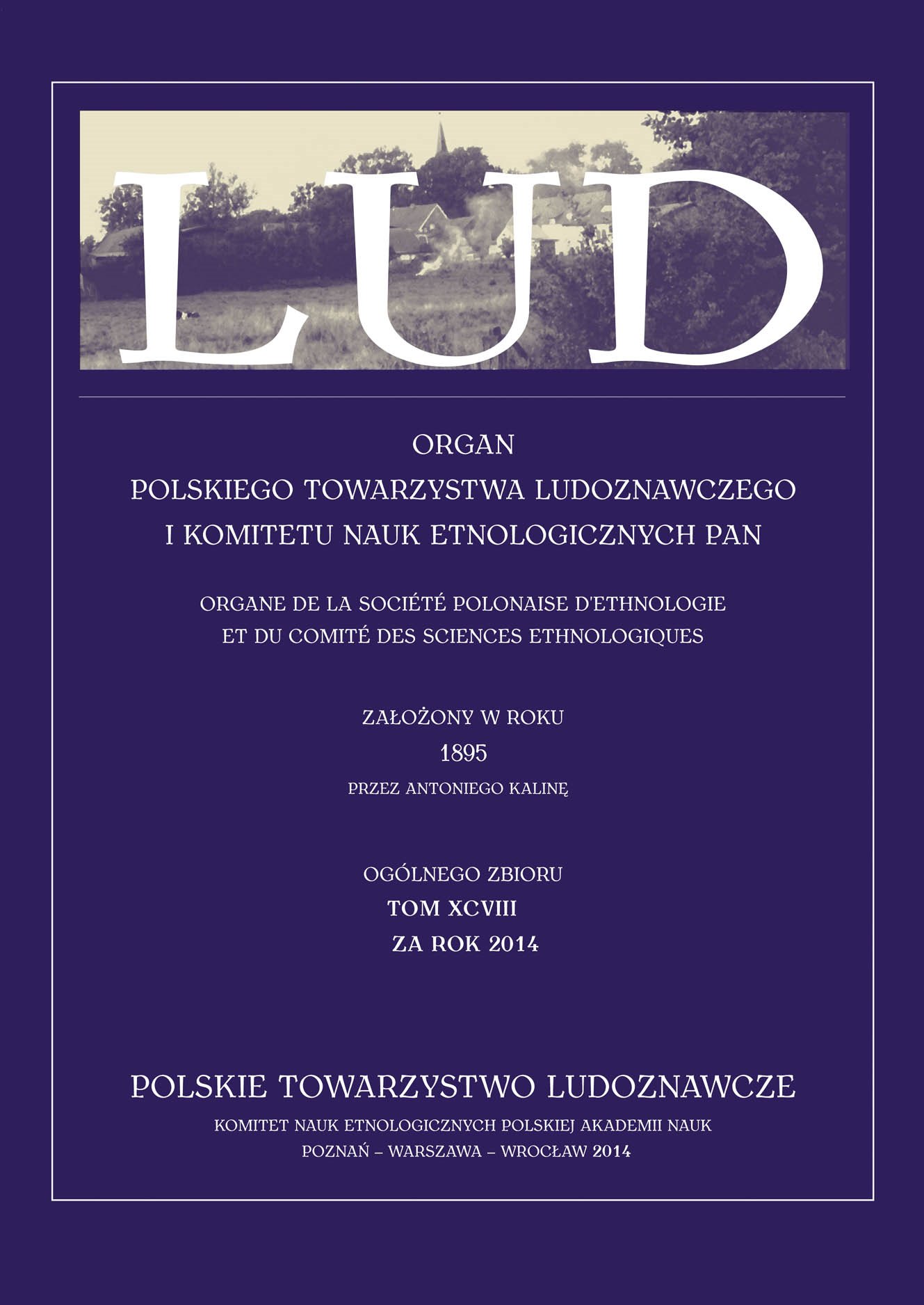MATERIAŁY KOLBERGOWSKIE A METODOLOGIA BADAŃ FOLKLORYSTYCZNYCH
KOLBERG’S WORKS AND METHODOLOGY OF FOLKLORE RESEARCH
Author(s): Piotr Grochowski, Violetta WróblewskaSubject(s): Customs / Folklore, Methodology and research technology
Published by: Polskie Towarzystwo Ludoznawcze
Keywords: Oskar Kolberg; folklore; folk song; folktale; systematics; methodology; folklore studies;
Summary/Abstract: This article is an attempt to take a critical look on Oskar Kolberg’s works in the context of modern methodological standards, which are accepted in the folklore research. The analysis of specific qualities of Kolberg’s material, (e.g. the way of obtaining ethnographical data, organizing them and preparing for print) leads to a few conclusions. An ambitious and innovating project (an attempt to show the connections between folk texts and folk culture in general) was partly realized, because in Kolberg’s works there is a characteristic dissonance. Some texts are placed in the group with descriptions of habits, beliefs and rituals, some in the separate sections associated with literature (e.g. „Folk novels”, „Songs”, „Proverbs”). And the third group consists of dances. The entire material is divided in two basic sections. The first one includes texts, which are recognized as closely connected with cultural context and this connection is emphasized. The second section includes texts, which are treated as autonomous and their links with other elements of folk culture are omitted and marginalized. It appears that Kolberg, despite his very modern, holistic approach to culture research, stayed in the strong influence of philological and musicological paradigms. They were not harmoniously combined, but competed which each other and gained „local victories” in particular areas of research.
Journal: LUD
- Issue Year: 98/2014
- Issue No: 1
- Page Range: 41-62
- Page Count: 22
- Language: Polish

